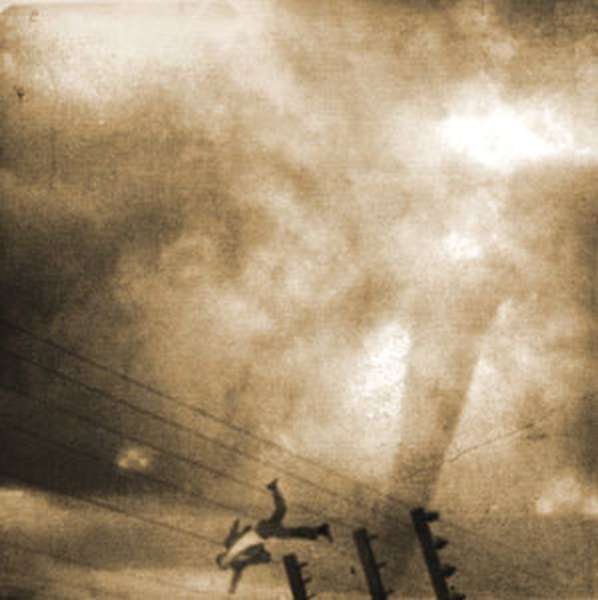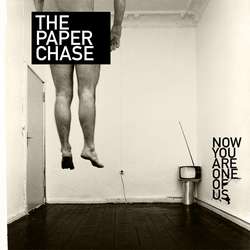The first thing that's going to strike you about The Paper Chase is that they're a quirky indie band. What you get in the first song is what you're going to get in the next nine: John Congleton's wavering voice and keyboard-driven epics.
The band relies predominantly on synthesizer instead of big guitars to make their statement. When it comes to art rock, The Paper Chase don't blunt their message: the song titles, interruptions of laughing, screaming, or telephone operator noises, and Congleton's vocal style are sure to alienate a sizable audience. The lyrics aren't subtle: the disasters are included next to the song titles and lines as direct as "its curtains for you me" don't hide any meaning.
In many ways, The Paper Chase are a band of contrasts. They go from quiet intros to clashy-keyboards and off key vocals. In "This is a Rape (The flood)," they run a stream of big word lyricism before culminating with "I want to be able to say in a disassociated way, 'what the fuck? Whatever.'" For being a rather inaccessible band they minimize their pretention pretty well. That is, they minimize it pretty well for releasing a two volume concept record about destruction and human frailty.
In line with the thematic approach, each of the ten songs destructs into chaos, where the band struggles to keep human emotion and survival on track through nature's storm. Congleton uses his imperfect voice as an instrument of vulnerability.
The band doesn't rely on bizarre time sequences or whispered lyricism - they run a gamut of dynamics and aren't afraid of rocking out when it's appropriate - and that's what sets them apart from their indie peers. While they're clearly crafting a piece of art, they're still a rock band at their core and they use subtlety sparsely.
Concept records can be hit or miss, and Someday This Could All Be Yours (Part 1) mostly works. The themes are universal and unchanging, and many a record before has covered them in some degree. The only real problem is that the recurring chaos gets redundant with only brief plateaus to ease all of the drama. The record assaults more than it relaxes and the shorter songs don't offer any respite from the longer epics that the listener needs to make it through the tension.

